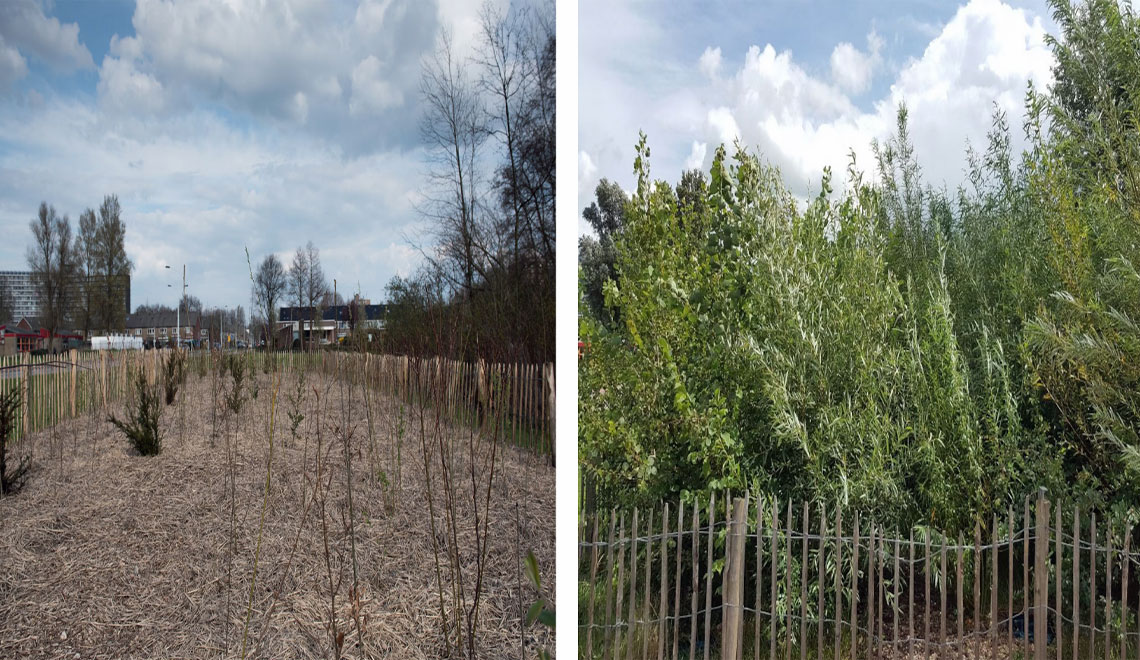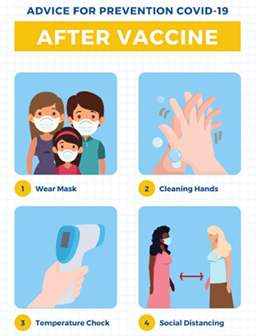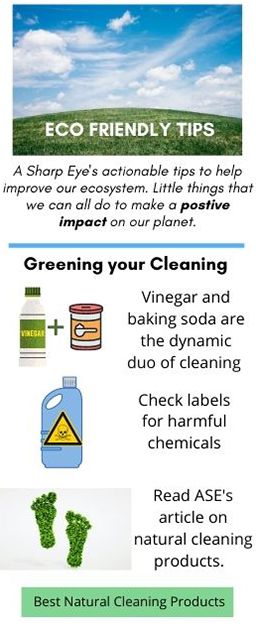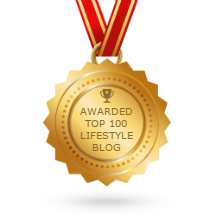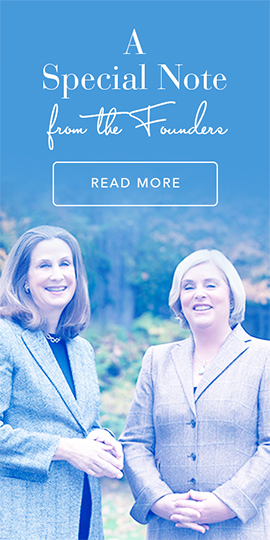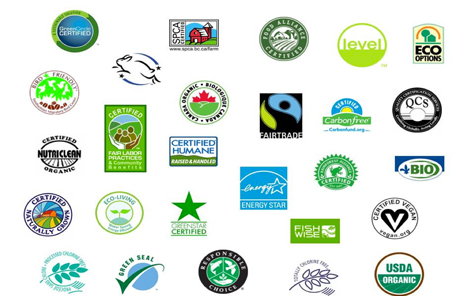
“Greenwashing” is a form of ‘green PR’ used to promote certain products as being environmentally friendly. It takes many forms but often involves the use of eco-labels to make certain products seem environmentally friendly when they are not. What do eco-labels mean, if anything? General eco-label claims made by manufacturers are usually unverified. Food eco-labels have wide variations in truthfulness and meaning. The use of eco-labels is voluntary.
Have you ever made a selection between products because one said it was ‘natural’? It’s common, and food companies know it. Eco-labeling provides information for consumers about green products but not all eco-labels are created equal. There are over 300 eco-labels! For food and many other products, eco-labels let buyers compare and contrast both social and environmental criteria.
Here are some we commonly see:
Natural does not mean that the food item is free of drugs, antibiotics or GMOs. Nor does it mean that the food item has been grown without any toxic pesticides. The term “natural” does not have any restrictions at all.
The “organic” label is regulated and verified by the U.S. Department of Agriculture. It is on meat, poultry, eggs and dairy products that come from animals that are given NO antibiotics or growth hormones.
Certified organic is not the same as ‘organic’ or ‘100% organic’. It applies only to packaged foods and wine.
Anti-biotic-free is not a trustworthy label for beef or poultry products. It can be construed to mean ‘free of residues’. It is considered ‘unapprovable’ by the USDA and banned from beef products. The USDA does allow producers to label meat and poultry products ‘no antibiotics administered’ or ‘raised without antibiotics”.
No hormones added/No hormones administered is a confusing eco-label. They are federally recognized terms that mean no hormones have been used over the course of the animal’s life. Producers may only make this claim if sufficient documentation has been provided to the USDA. By law pork and poultry must remain hormone free already.
Free Range is trustworthy only for poultry as the USDA has a standard for poultry but not for beef or eggs.
Marine Stewardship Council is the only trustworthy eco-label for seafood. It means that that seafood is not endangered or over-fished.
Biodegradable products by FTC rules must ‘return to nature’ when left to the elements. No one enforces this label.
Certified Biodegradable means that soaps and cleaners with this label will not cause harm to fish, and will break down quickly.
Hypoallergenic was created by cosmetics advertising companies in the 1950s and is completely meaningless.
Fragrance free means only that you can’t discern a scent, but it does not mean that the product is chemical-free, and the chemicals might be used to cover up an odor.
Nontoxic means the product won’t kill someone who ingests a product with this label, but it still could cause serious health problems.
Recycled often means that the product was made from both recycled and non-recycled materials. 100% recycled means the product was made from only recycled materials.
www.greenerchoices.org allows you to search the meaning for specific eco-labels.

